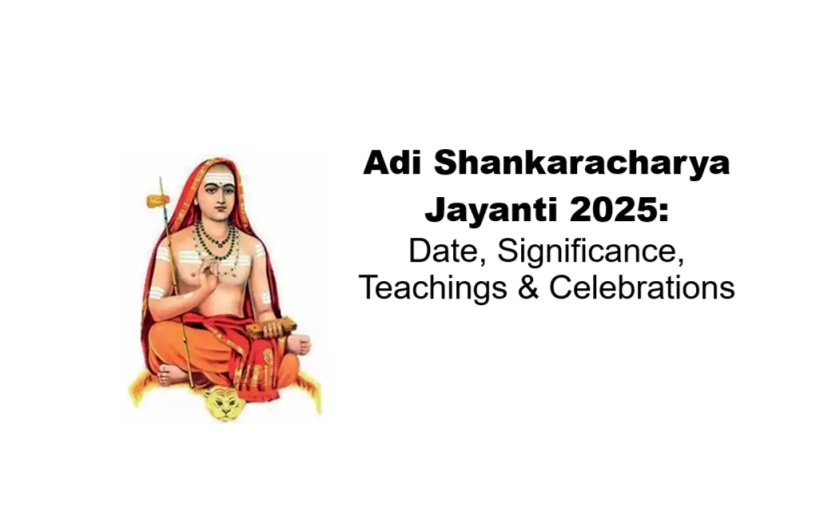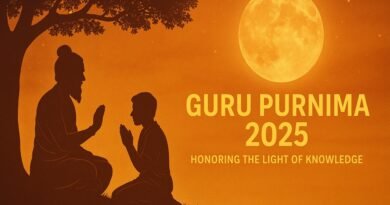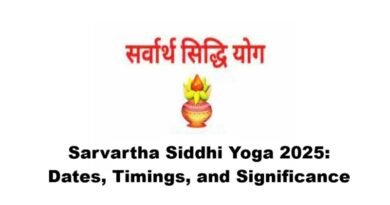
Adi Shankaracharya Jayanti 2025: Date, Significance, Teachings & Celebrations
Introduction
Adi Shankaracharya Jayanti is observed to commemorate the birth of Jagadguru Adi Shankaracharya, the great Indian philosopher and spiritual reformer who revived Advaita Vedanta and unified Hindu philosophy during the 8th century. His teachings continue to influence Indian thought, spirituality, and culture.
In 2025, India will celebrate the 1237th birth anniversary of this revered saint, who traveled across the country to establish dharma and spiritual unity.
Adi Shankaracharya Jayanti 2025: Date and Tithi
- 🗓️ Date: Friday, May 2, 2025
- 🕉️ Tithi: Panchami Tithi, Shukla Paksha, Vaishakha month
- Panchami Tithi Begins: 11:23 AM on May 1, 2025
- Panchami Tithi Ends: 09:14 AM on May 2, 2025
The Jayanti is observed on Panchami Tithi during sunrise, hence celebrated on 2nd May 2025.
Who Was Adi Shankaracharya?
Adi Shankaracharya was born in Kalady (modern-day Kerala) in the 8th century CE. A child prodigy, he took sannyasa (renunciation) at a very young age and traveled across India on foot to revive the essence of Sanatana Dharma and Vedic knowledge.
🧠 Key Contributions:
- Propounded Advaita Vedanta – the philosophy of non-dualism.
- Authored over 300 texts, including commentaries (Bhashyas) on Upanishads, Bhagavad Gita, and Brahma Sutras.
- Established the four cardinal mathas (monasteries) in Sringeri, Dwarka, Puri, and Jyotirmath (Joshimath).
- Advocated unity among various sects of Hinduism and promoted the worship of Panchayatana (five deities): Shiva, Vishnu, Shakti, Surya, and Ganesha.
Significance of Shankaracharya Jayanti
Adi Shankaracharya’s Jayanti is not just a religious observance—it’s a celebration of India’s spiritual renaissance.
🔷 Key Significances:
- Promotes intellectual inquiry and spiritual awareness.
- Reinforces unity in diversity through Advaita (oneness of soul and Brahman).
- Revives Vedic and Upanishadic wisdom in a simplified form.
Teachings of Adi Shankaracharya
1. Advaita Vedanta
“There is no difference between the soul (Atman) and Brahman (Supreme Reality).”
2. Brahma Satyam Jagan Mithya
“Brahman is the only truth, the world is an illusion.”
3. Self-Realization
One must rise beyond rituals and realize the Self to attain Moksha (liberation).
4. Detachment
Live in the world but remain detached—focus on Jnana (knowledge) over materialism.
Rituals and Observances
🕯️ 1. Jnana Yajnas and Discourses
- Spiritual organizations and mathas conduct discourses on Advaita Vedanta and Shankara’s works.
- Chanting of Shankaracharya’s compositions like Atma Bodha, Bhaja Govindam, and Vivekachudamani.
🛕 2. Special Puja at Mathas
- Worship and homa (fire rituals) are performed in Sringeri, Puri, Dwarka, and Jyotirmath.
- Priests and scholars gather for Vedic recitations and cultural programs.
📚 3. Educational Initiatives
- Schools and colleges organize essay writing, lectures, and competitions on Shankara’s philosophy.
- Public awareness campaigns to spread the rational and inclusive message of Advaita.
🕉️ 4. Pilgrimage
- Devotees visit Kalady (Kerala), his birthplace, and temples linked with his life journey.
Celebrations Across India
- Kerala (Kalady): Grand events including temple processions and Vedic chanting.
- Karnataka (Sringeri Sharada Peetham): Ceremonial worship of Sharada Devi and Acharya Padukas.
- Uttarakhand (Jyotirmath): Processions, spiritual gatherings, and havans in the Himalayas.
- Odisha (Puri Govardhan Peeth) & Gujarat (Dwarka): Observances at the mathas and Jagannath Temple.
Modern-Day Relevance of Adi Shankaracharya
- His logic-driven approach to spirituality is deeply relevant in today’s rational age.
- He advocated inner realization over blind ritualism.
- His inclusive philosophy helps bridge divides among sects and communities.
- A timeless figure whose vision of oneness, tolerance, and truth guides seekers even in the 21st century.
Conclusion
Adi Shankaracharya Jayanti 2025 offers us the opportunity to revisit one of India’s greatest spiritual minds. His teachings transcend time, geography, and belief systems. As we celebrate his 1237th birth anniversary, let us embrace his wisdom and strive toward self-realization, harmony, and a deeper understanding of life.
📌 Keep following Bharat Articles for more insights on Indian culture, festivals, and Vedic wisdom.






